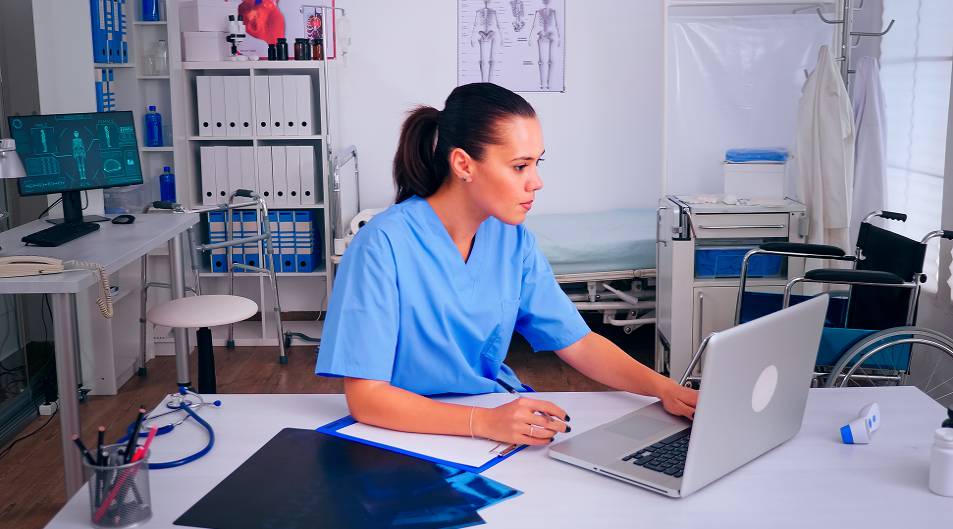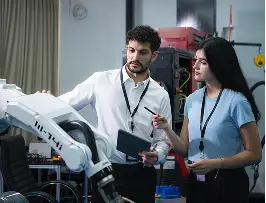Revolutionizing Surgical Sales Training with an Immersive VR Simulation
Industry Healthcare Technology & Medical Devices
-

$10B+ Client Revenues
-

12+ Successful Years
-

1000+ IT Ninjas
-

5000+ Projects
"The VR simulation developed by Developers.dev has transformed our training program. Our sales reps can now practice in a hyper-realistic, zero-risk environment, leading to a 30% reduction in their onboarding time. The team's professionalism, technical expertise in Unreal Engine, and adherence to our stringent quality standards were second to none. They are a world-class development partner."

David Chen, VP of Global Learning & Development
A Fortune 500 medical device company based in the USA, with a global salesforce of over 5,000 representatives. The company was facing challenges in providing consistent, hands-on training for a new, complex surgical device, leading to longer sales cycles and inconsistent product knowledge in the field. Traditional training methods were costly, logistically complex, and lacked the necessary realism.



The client needed to train thousands of sales representatives on a sophisticated new surgical tool. The physical devices were too expensive and scarce for widespread hands-on training, and video-based learning was proving ineffective for teaching complex procedural skills.

The simulation needed to accurately replicate the look, feel, and haptic feedback of the surgical device.

The solution had to be easily deployable to thousands of users on standalone VR headsets (Meta Quest 2).

The application required a consistently high frame rate (90 FPS) to prevent motion sickness and ensure a comfortable user experience.

The client needed a robust backend to track user performance, identify skill gaps, and certify representatives.

Developers.dev assembled a dedicated "Augmented-Reality / Virtual-Reality Experience Pod" to create a world-class VR training simulation.
We chose Unreal Engine 4 for its superior graphical fidelity and robust toolset for creating realistic environments and interactions.
We worked with haptic hardware APIs to simulate the tactile feedback of using the surgical device, a critical component for muscle memory.
Our engineers implemented advanced optimization techniques, including level of detail (LOD) systems and baked lighting, to achieve the target 90 FPS on the Meta Quest 2's mobile hardware.
We developed a secure cloud backend on AWS to manage user profiles, track detailed performance metrics, and generate comprehensive reports for training managers.
We began with a 2-week sprint to create a functional prototype, validating the core interaction mechanics.
The project followed a 6-month agile development plan with bi-weekly sprints and demos, allowing the client to provide continuous feedback.
Our 3D artists created highly detailed, medically accurate models of the surgical device and operating room environment.
We conducted multiple rounds of user testing with actual sales reps to refine the user experience and training modules.
The application was deployed through a secure enterprise mobile device management (MDM) platform.
We provided a dedicated support team to manage updates and address any technical issues post-launch.
The client reported a 30% reduction in the time required to get a new sales representative fully trained and certified.
Reps who completed the VR training demonstrated 50% higher procedural accuracy in live assessments.
The company saved an estimated $1.5 million in the first year on travel, logistics, and physical equipment costs associated with traditional training.
The gamified training modules led to a 95% completion rate, compared to 60% for previous e-learning courses.

Access to a pre-vetted, expert team.
Ensured quality and predictability.
Deep technical expertise.
SOC 2 compliance for backend data.
Continuous client collaboration.
The client owned the final product completely.
Built on AWS for global reach.
From concept to post-launch support.
Delivered measurable business results.
By partnering with Developers.dev, the client successfully replaced an outdated, inefficient training model with a cutting-edge VR solution. This not only solved their immediate training challenge but also established a scalable platform for future immersive learning initiatives, providing a significant competitive advantage.